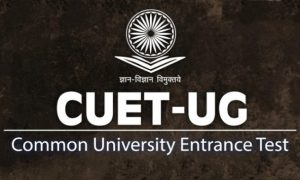Examinations can be stressful. Moreover, even planning for preparations for any test can be nerve-wracking. But examinations are part of a learners’ life. To achieve a certain level or evaluate the understanding of a subject or domain, examinations are required.
CBSE board exams are crucial for students of Classes 11 and 12. Hence, it is necessary to start preparing for them well in advance.
The key way to perform exceptionally well in the exams apart from studying hard, grasping, and retaining everything is being able to study smart and in a proper manner so that the efforts and hard work are converted into impressive scores.
Changed CBSE board exam pattern
The CBSE board exams have been through a major pattern changed this year onwards with the board exams set to be held twice a year the Term 1 board exams in November-December in the MCQ format and the Term 2 board exams in March-April in a combined subjective and objective format.
The CBSE Term 1 board exams are currently in progress and a few exams have already been conducted
1. Know your syllabus and prepare a schedule
The term 1 board examination consists of 50% of the syllabus and students need to have a clear idea of the number of chapters and marks weightage against each chapter.
There will be seven/eight chapters in mathematics, six chapters in science, eight chapters in social science, and 13 chapters in English.
Dedication and allocation of time all depend on students studying capabilities. It is of utmost importance to proceed with the study plan with a plan in mind.
2. Start solving the sample papers to sort your queries
This year’s term 1 examination will be a goal-based examination featuring multiple-choice questions (MCQs).
Students can refer to the exam-ready books for English, Mathematics, Science, and Social Studies, etc.
These books cover a brief synopsis of the chapters by a spread of objective questions together with MCQs, assertion, and motive, and case/supply/passage-based questions.
3. Practice all the latest typologies of MCQs
Speed and accuracy are a must to crack MCQs-based examination. To clear an MCQ test, you need to prepare.
Daily practice with MCQ based question bank will make sure that students have enough time and opportunity to test their knowledge and can apply it.
4. Make thorough notes
Students cannot afford to take the risk of not covering the syllabus and not revising the theoretical topics adequately.
Students need to focus on retention in an MCQ-based examination.
5. Practice comprehensively
It is important to spare some time for daily practice from the revision of theoretical topics. If you can solve the practical questions in less time and then you can score good marks.
To practice the theory-based topics, you need to assess your knowledge through constant testing.
Practicing such questions helps in improving speed, accuracy and gives exposure to every question that might be asked in the CBSE term 1 board examinations
6. Learn and evaluate
Multiple choice questions allow for performance analysis. Hardworking students identify patterns of incorrect answers and focus on the topics that students need to focus on.



































